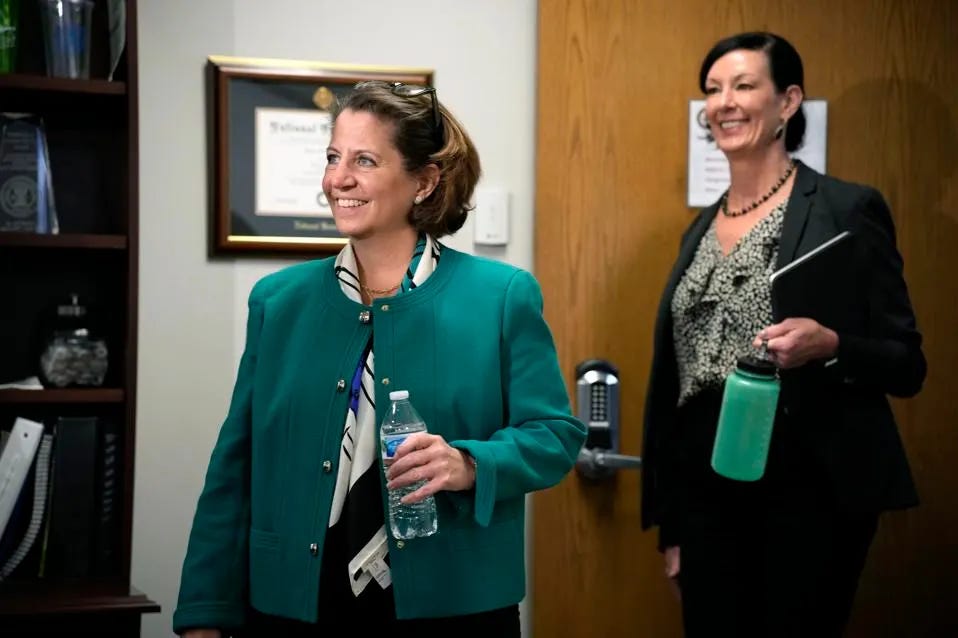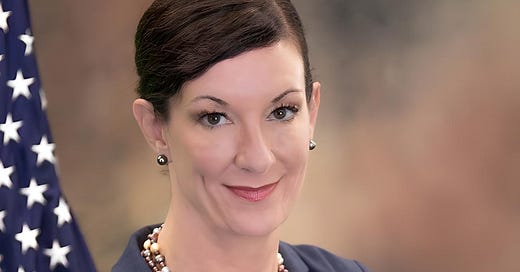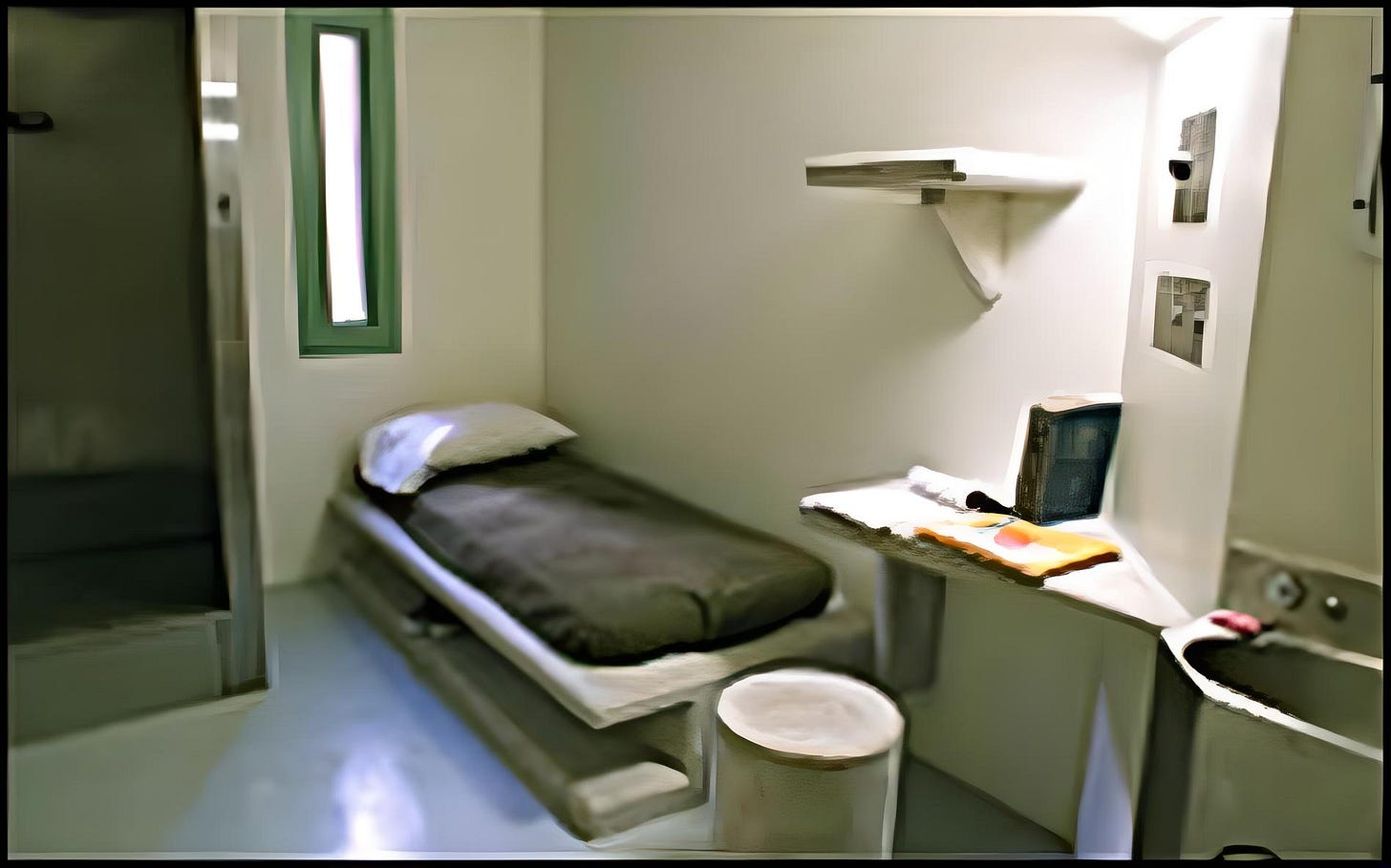Federal Prison Overhaul Promised, But Skeptics Question Change
Bureau of Prisons (BOP) Director Collette Peters' Plan Looks at SHU, Other Horrors; Lacks Concrete Milestones
By Richard Luthmann
Despite inheriting a history of inefficiency and inhumanity, Federal Bureau of Prisons (BOP) Director Collette Peters is trying to reshape the federal agency’s fortunes. Earlier this week, she unveiled a robust strategy to revamp the BOP through a video entitled “Framework for the Future.”
The video describes an “ambitious plan tailored to improve the agency and the wellness and work-life of the dedicated 35,000+ employees and to enhance the lives of the adults in the FBOP's care and custody.”
Now in her full second year as the top U.S. prison official, Peters helms a behemoth correctional organization with 122 institutions and an annual budget exceeding $8 billion. She recognizes the challenges for her and the BOPs, and the nearly 36,000 employees are steep. The most pressing concerns include critical staffing shortages, deteriorating facilities, and contentious use of Special Housing Units (SHU).

The top goal of the BOP, per Peters, is to hire more people. During a 60 Minutes interview earlier this month, Peters was asked about the shortage of staff the BOP is experiencing where she acknowledged that hiring and retaining people has been a challenge. Retired American Federation of Government Employees president Shane Fausey, who also appeared in the 60 Minutes report, said that the number of jobs needed to be filled is approximately 8,000.
Peters said in her Monday address, “We know you [BOP frontline staff] are exhausted and riveted with overtime and augmentation. So we along with the Department of Justice will be laser focused on improving the situation,” promising a year of action to mitigate the crisis.
Augmentation, where BOP employees such as secretaries, doctors, case managers, and counselors perform correctional officer responsibilities during staff shortages, is now routine.
Federal Bureau of Prisons Shaken as Officer Sentenced for Inmate Abuse
By Richard Luthmann (OAKLAND, CA) - A former correctional officer of the Federal Bureau of Prisons (BOP), Andrew Jones, was sentenced to 96 months in prison, followed by a decade of supervised release, for sexually abusing multiple female inmates at the Federal Correctional Institution in Dublin.
The BOP has also been a hotbed of employee misconduct, including the sexual assault of female inmates at multiple of its prison facilities, most notoriously at the Federal Correctional Institution in Dublin, California. In response, Peters recently said, “[We’re striving to create] an environment where everybody in our custody, but specifically our women, feel comfortable coming forward following any concerns that they might have inside their institutions.”
Infrastructure woes are also on Peters's radar, with a $3 billion backlog in maintenance and repairs now receiving attention thanks to a recent funding boost.
Peters also acknowledged that the BOP’s health services departments are understaffed. In addition to advancing the BOP’s recruitment and retention of health services professionals, Peters ordered “a massive review of our health care system.” Plagued by increases in healthcare costs, both mental and physical issues for prisoners have long been a challenge as the BOP routinely has to rely on outside hospitals and medical centers to help care for prisoners.
The BOP has also had difficulty implementing the First Step Act, a law that was supposed to lead to moving more prisoners, mostly minimum security, back into the community sooner. Delays in implementation have been caused by early misinterpretation of the law, computer glitches, and a shortage of halfway house capacity.
Yet, the BOP has also come under the most significant fire for its use of restrictive housing. The BOP uses Special Housing Units (SHU) not only to discipline those prisoners who violate rules but also to place those seeking protection from the general inmate population.
Recent reports from the Government Accountability Office (GAO) and the Department of Justice cast a stark light on the BOP's reliance on the SHU, where around 8% of federal inmates, approximately 12,000 individuals, endure up to 23 hours a day in isolation as of October 2023.
This practice often results in prisoners being segregated for months, with limited contact with the outside world, exacerbating or creating mental health problems and posing challenges to Peters' reform agenda.
Director Peters admitted the use of the SHU is neither a deterrent nor conducive to rehabilitation, albeit after the GAO report.
Critics argue that the BOP has been slow to implement necessary changes, with the GAO revealing that the agency has not fully executed 54 of the 87 recommendations from two prior studies to improve restrictive housing practices. The sluggish pace of reform is attributed to a lack of clear responsibility and definitive timelines for implementation among BOP officials.
U.S. Senator Dick Durbin has been an outspoken critic of the BOP’s SHU practices and has sought to introduce legislation to curb the use of housing nearly 11,000 prisoners in the restrictive housing parts of prisons.
Peters said, “So we are going to work to optimize the use of restrictive housing so that we can safely and appropriately care for those in our custody while reducing the use of restrictive housing. So we have our own internal workgroup recommendations that are forthcoming, as well as an assessment from an external body through the National Institute of Justice.”
The United Nations first adopted the Standard Minimum Rules for the Treatment of Prisoners in 1957. In 2015, these Rules were revised and adopted as the “Nelson Mandela Rules” to honor the legacy of the late President of South Africa, Nelson Rolihlahla Mandela, who spent 27 years in prison in the course of his struggle for global human rights, equality, democracy, and the promotion of a culture of peace.
The Nelson Mandela Rules are a primary source of international human rights standards relating to treatment in detention. They are the fundamental framework used by monitoring and inspection mechanisms in assessing the treatment of prisoners. The U.S. is a signatory to the United Nations Convention Against Torture (UNCAT).
Critics argue that SHU confinement, where inmates are isolated for up to 23 hours daily, amounts to torture under both the Mandela Rules and the U.S. Constitution's Eighth Amendment, primarily when used extensively and unjustifiably. United Nations experts say the psychological toll of such isolation, with irreversible damage possible within 15 days, calls into question the humanity of the practice.
Almost two years ago, on May 25, 2022, President Biden issued an Executive Order expressing that inmates should be “free from prolonged segregation,” as the use of restrictive housing has surged in recent years. See Executive Order 2-22-118100 (“It is also the policy of my Administration to ensure that conditions of confinement are safe and humane and that those who are incarcerated are not subjected to unnecessary or excessive uses of force, are free from prolonged segregation”).
In September 2022, shortly after taking office, new Director Peters assured Congress she was “looking into” improper use of the SHU and other lingering constitutional and human rights issues. See Statement of Colette S. Peters, Before the Senate Judiciary Committee, “Oversight of the Federal Bureau of Prisons,” September 29, 2022.
Despite President Biden's and Director Peters’s previous promises, Peters has reiterated her commitment to addressing SHU misuse since 2022, yet meaningful reform appears elusive. This skepticism is fueled by a longstanding culture within the BOP that critics argue is resistant to change.
However, the road ahead is fraught with systemic challenges. From implementing the First Step Act to addressing the needs of incarcerated women and expanding residential reentry centers, the BOP's task list is extensive. With Peters at the helm, the agency claims it is poised for a year of action, aiming to transform its operations and the lives of those within its walls.
The shadow of the SHU and past BOP scandals loom large. As Peters pushes forward with her agenda, the success of her tenure and the BOP's reform will be measured by the agency's ability to transcend its past, prioritize humane treatment, and effectively address the use of solitary confinement.
Peters's efforts to humanize the prison environment, improve healthcare, and enhance educational opportunities, including expanding Pell Grants for incarcerated students, signal a comprehensive approach to reform. Initiatives like gender-responsive training and pursuing more humane conditions through architectural and procedural changes reflect a strategic vision prioritizing normalcy, humanity, and compassion.
Peters previously tried to humanize prisons as director of the Oregon system, building a Japanese garden in one prison and making the official language less demeaning.
And Japanese gardens and Pell Grants are lovely, but it’s far nicer to stop torturing humans and subjecting them to rape.
The question remains: Can the BOP, under Peters's leadership, fulfill its promises, or will the cycle of skepticism and unfulfilled commitments persist?








